Global warming responsible for decline in global crop production - study
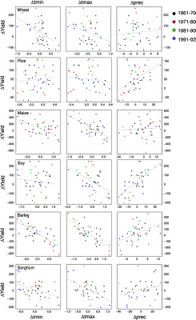 According to a new study by researchers at the Carnegie Institution and Lawrence Livermore National Laboratory, warming global temperatures have already caused annual losses of roughly US$5 billion for major food crops over the past two decades.
According to a new study by researchers at the Carnegie Institution and Lawrence Livermore National Laboratory, warming global temperatures have already caused annual losses of roughly US$5 billion for major food crops over the past two decades.From 1981-2002, warming reduced the combined production of wheat, corn, and barley—cereal grains that form the foundation of much of the world’s diet—by 40 million metric tons per year. The diagram with scatter plots (click to enlarge) shows first-differences of yield (kg ha–1) and first-differences of average monthly minimum and maximum temperatures (°C) and precipitation (mm) during the growing season, along with best-fit trend lines (in grey). Each decade is shown with a different colour, indicating that the relationships do not appear to change through time.
The study, titled "Global scale climate–crop yield relationships and the impacts of recent warming" [*abstract], is published in the current online edition of the journal Environmental Research Letters, and demonstrates that this decline is due to human-caused increases in global temperatures. The article is freely accessible [*.html version / *.pdf version]. Do check it out, as the evidence is represented in a very straightforward way, and it offers a - scaringly clear - signal of the potential disaster climate change has in store for global agriculture.
"Most people tend to think of climate change as something that will impact the future,” says Christopher Field, co-author on the study and director of Carnegie’s Department of Global Ecology in Stanford, Calif. “But this study shows that warming over the past two decades has already had real effects on global food supply."
The study is the first to estimate how much global food production has already been affected by climate change. Field and David Lobell, lead author of the study and a researcher at Lawrence Livermore National Laboratory, compared yield figures from the Food and Agriculture Organization with average temperatures and precipitation in the major growing regions.
They found that, on average, global yields for several of the crops responded negatively to warmer temperatures, with yields dropping by about 3-5 percent for every 1 degree F increase. Average global temperatures increased by about 0.7 degrees F during the study period, with even larger changes in several regions:
 biomass :: bioenergy :: biofuels :: energy :: sustainability :: climate change :: global warming :: agriculture :: crops :: yields ::
biomass :: bioenergy :: biofuels :: energy :: sustainability :: climate change :: global warming :: agriculture :: crops :: yields :: “Though the impacts are relatively small compared to the technological yield gains over the same period, the results demonstrate that negative impacts are already occurring,” said Lobell.
The researchers focused on the six most widely grown crops in the world: wheat, rice, maize (corn), soybeans, barley and sorghum—a genus of about 30 species of grass raised for grain. These crops occupy more than 40 percent of the world’s cropland, and account for at least 55 percent of non-meat calories consumed by humans. They also contribute more than 70 percent of the world’s animal feed.
The main value of this study, the authors said, was that it demonstrates a clear and simple correlation between temperature increases and crop yields at the global scale. However, Field and Lobell also used this information to further investigate the relationship between observed warming trends and agriculture.
"We assumed that farmers have not yet adapted to climate change—for example, by selecting new crop varieties to deal with climate change. If they have been adapting—something that is very difficult to measure—then the effects of warming may have been lower,” explained Lobell.
Most experts believe that adaptation would lag several years behind climate trends, because it can be difficult to distinguish climate trends from natural variability. “A key moving forward is how well cropping systems can adapt to a warmer world. Investments in this area could potentially save billions of dollars and millions of lives,” Lobell added.
More information:
Carnegie Institution: Crops feel the heat as the world warms - March 16, 2007
David B Lobell and Christopher B Field, "Global scale climate–crop yield relationships and the impacts of recent warming", Environ. Res. Lett. 2 (March 2007), 014002, doi:10.1088/1748-9326/2/1/014002
Article continues
 --------------
--------------
 Taiwan's Feng Chia University has succeeded in boosting the production of hydrogen from biomass to 15 liters per hour, one of the world's highest biohydrogen production rates, a researcher at the university said Friday. The research team managed to produce hydrogen and carbon dioxide (which can be captured and stored) from the fermentation of different strains of anaerobes in a sugar cane-based liquefied mixture. The highest yield was obtained by the Clostridium bacterium.
Taiwan's Feng Chia University has succeeded in boosting the production of hydrogen from biomass to 15 liters per hour, one of the world's highest biohydrogen production rates, a researcher at the university said Friday. The research team managed to produce hydrogen and carbon dioxide (which can be captured and stored) from the fermentation of different strains of anaerobes in a sugar cane-based liquefied mixture. The highest yield was obtained by the Clostridium bacterium.

 The British Department of Trade and Industry (DTI) has released an interesting
The British Department of Trade and Industry (DTI) has released an interesting 




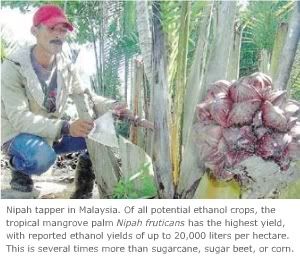 The Biopact is currently co-operating with a small environmental NGO in Rivers State, Nigeria, to analyse the feasibility and social and environmental impact of ethanol production from the mangrove palm known as
The Biopact is currently co-operating with a small environmental NGO in Rivers State, Nigeria, to analyse the feasibility and social and environmental impact of ethanol production from the mangrove palm known as 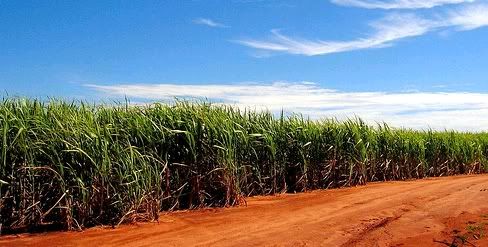 A while ago we
A while ago we 
 During a visit to Indonesia, Brazil's agriculture minister Luís Carlos Guedes Pinto
During a visit to Indonesia, Brazil's agriculture minister Luís Carlos Guedes Pinto 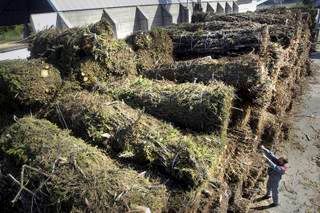 Finland-based wood processing firm Stora Enso has
Finland-based wood processing firm Stora Enso has  We continue our weekly update on what's happening in Brazil's bioenergy market. Two important stories dominated the headlines, namely the signing of Brazil's ethanol pact with the U.S., and the speed with which a Brazilian agricultural office in Ghana is building South-South cooperation and tech transfer links with African countries. We covered both stories earlier (
We continue our weekly update on what's happening in Brazil's bioenergy market. Two important stories dominated the headlines, namely the signing of Brazil's ethanol pact with the U.S., and the speed with which a Brazilian agricultural office in Ghana is building South-South cooperation and tech transfer links with African countries. We covered both stories earlier ( The development ministers of the 27 EU member states concluded their
The development ministers of the 27 EU member states concluded their 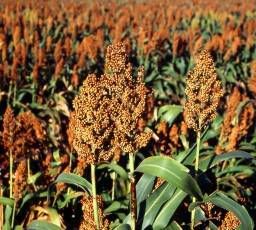 The
The 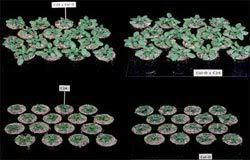 Scientists from the
Scientists from the 
 According to
According to 
 Despite a biofuels cooperation agreement signed between Brazil and the U.S. last week, the world's largest fuel consumer
Despite a biofuels cooperation agreement signed between Brazil and the U.S. last week, the world's largest fuel consumer  The energy needed to manufacture a car is around a tenth of the energy used by that same car during its life on the road. Similarly, around ten percent of the total amount of carbon dioxide emissions produced over the entire life-cycle of an average passenger car comes from manufacturing the vehicle. No wonder then that car makers are trying to increase the efficiency of the production process and to lower its carbon footprint.
The energy needed to manufacture a car is around a tenth of the energy used by that same car during its life on the road. Similarly, around ten percent of the total amount of carbon dioxide emissions produced over the entire life-cycle of an average passenger car comes from manufacturing the vehicle. No wonder then that car makers are trying to increase the efficiency of the production process and to lower its carbon footprint.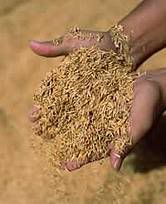 France-based multinational industrial conglomerate AREVA
France-based multinational industrial conglomerate AREVA 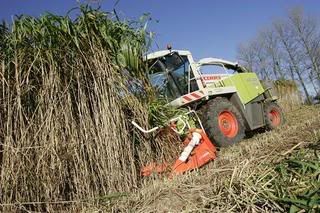 Scientists of the UK's
Scientists of the UK's 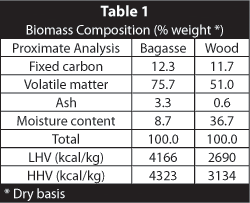 There's a steady competition of ideas between biofuel producers in the North, and those in the South. First generation biofuels - such as sugarcane ethanol - are far more efficient than comparable fuels made from crops grown in temperate climates, such as corn ethanol, which has a very weak energy balance. For this reason, the South and energy analysts from energy institutes like the IEA are calling for the creation of a regime promoting global biofuel trade, in which the developing world supplies world markets and generates export revenues from it (
There's a steady competition of ideas between biofuel producers in the North, and those in the South. First generation biofuels - such as sugarcane ethanol - are far more efficient than comparable fuels made from crops grown in temperate climates, such as corn ethanol, which has a very weak energy balance. For this reason, the South and energy analysts from energy institutes like the IEA are calling for the creation of a regime promoting global biofuel trade, in which the developing world supplies world markets and generates export revenues from it (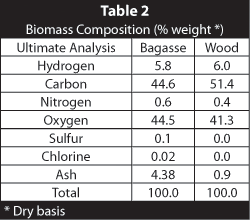
 Table 3 shows the results of biomass consumption for their two feedstocks, aiming at the production of high-quality liquid byproducts as well as electric power generation.
Table 3 shows the results of biomass consumption for their two feedstocks, aiming at the production of high-quality liquid byproducts as well as electric power generation.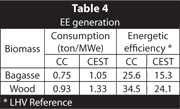 Using entirely the syngas generated in the gasification stage, this study also estimated (Table 4) the potential for electric power generation considering a Combined Cycle – CC – and a Condensing Extraction Steam Turbine – CEST.
Using entirely the syngas generated in the gasification stage, this study also estimated (Table 4) the potential for electric power generation considering a Combined Cycle – CC – and a Condensing Extraction Steam Turbine – CEST.
 This system, using an optimised pressure swing adsorption (PSA) process and a proprietary rotary valve technology delivers a higher efficiency than conventional PSA systems in a more compact, cost effective package. QuestAir’s
This system, using an optimised pressure swing adsorption (PSA) process and a proprietary rotary valve technology delivers a higher efficiency than conventional PSA systems in a more compact, cost effective package. QuestAir’s 
 The gradual transition towards the biobased economy brings opportunities for 'developing' countries to leapfrog beyond the petroleum era and into a cleaner, greener and more renewable future based on biotechnology. One field in which they are already enjoying late-comer as well as agro-ecological advantages is that of biodegradable plastics and polymers. An overview.
The gradual transition towards the biobased economy brings opportunities for 'developing' countries to leapfrog beyond the petroleum era and into a cleaner, greener and more renewable future based on biotechnology. One field in which they are already enjoying late-comer as well as agro-ecological advantages is that of biodegradable plastics and polymers. An overview.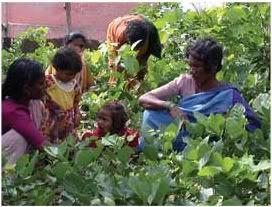 The Statesman
The Statesman 







Saturday, March 17, 2007
Portuguese-Angolan group launches biodiesel project in Angola
The vast and scarcely populated African country, which comes out of a decade-long civil war, is now seeing its first concrete biofuels project, despite the fact that Angola is a major petroleum producer. The Angolan-Portuguese group Afriagro announced [*Portuguese] plans to make an initial investment of €35 (US$46.6) million into a biodiesel plant that will be using oil from the African oil palm.
The project is to be located near the atlantic town of Ambriz, in the north-western Bengo province. It will consist of a new 5000 hectare palm plantation utilising high-yield hybrids that start yielding their first harvesteable oil-rich fruits after three years. From the fourth year onwards, they are mature and keep yielding for 20 years.
Work on the biodiesel plant is slated to begin in 2008.
The Portuguese Atlântica group holds a 45% stake in Afriagro, with the remainder divided under three Angolan firms: Nzogi Yetu, Coroa Gest and Lion.
Luís Farinha dos Santos, president of the Atlântica group, told the Jornal de Angola that the goal is to expand the plantation gradually to 20,000 hectares. Such an expansion implies the involvement of local farmers.
The Atlântica group has been operating in the Angolan market since 1997 as a diversified company [entry ends here].
Article continues
posted by Biopact team at 12:05 PM 0 comments links to this post
